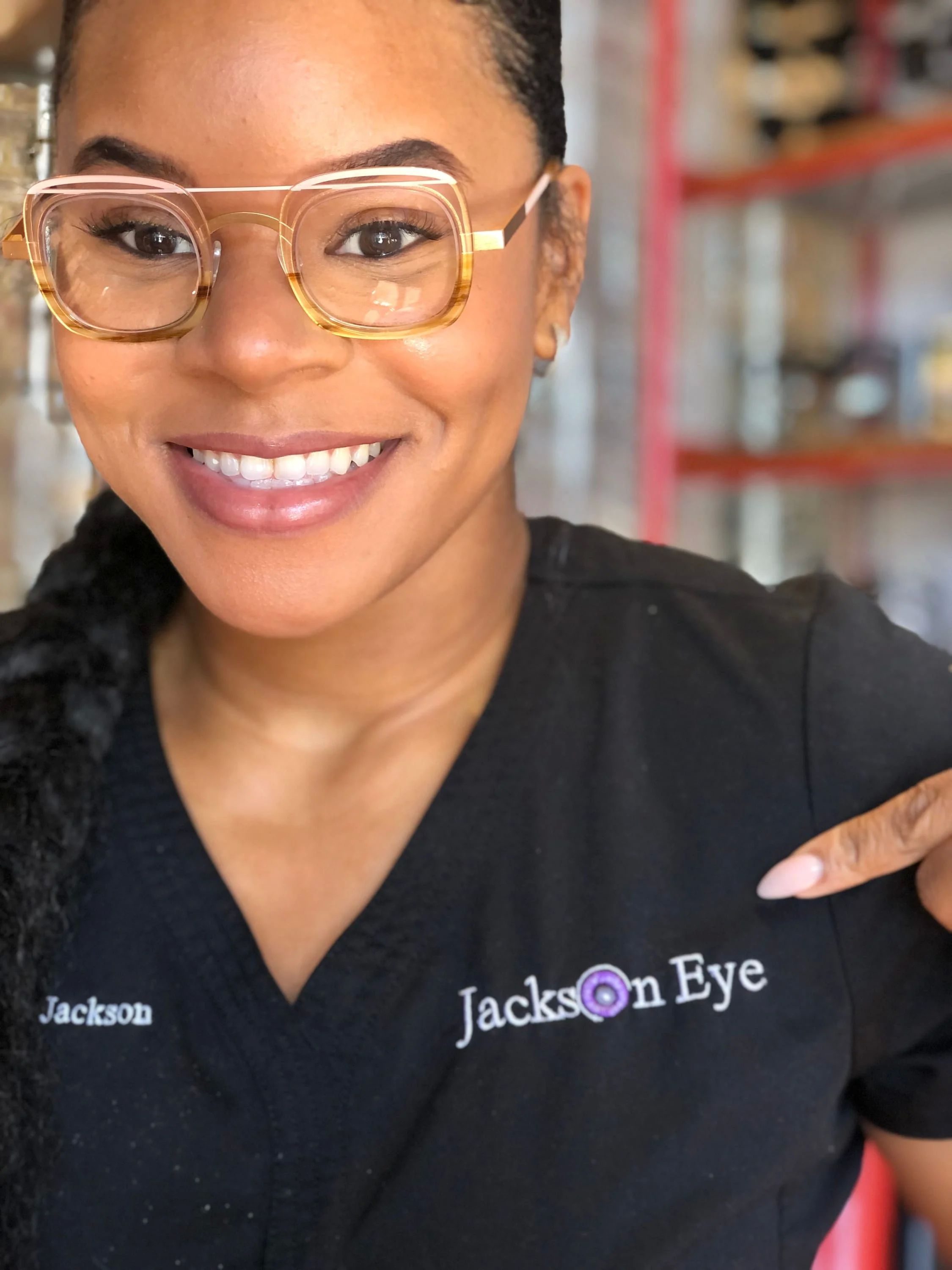MeetDr. Danielle Jackson
A Texan through and through, Dr. Jackson moved to the Atlanta area in 2012. She worked a retail eyecare store for a few years before deciding to open her practice cold in 2015.

You will always find the trusted eye care services you and your family need at Jackson Eye in Fairburn, GA.
Make an appointment for optometry services ranging from routine vision exams to the treatment of complex vision disorders and eye diseases. Optometrist Dr. Danielle Jackson leads a talented and compassionate team of eye and vision professionals.


Routine eye exams are a vital aspect of preventive eye care. Without routine eye exams, vision issues often go undetected since most eye disorders don't have clear symptoms.

While dry eye isn’t a serious condition, it can have a major impact on your quality of life. You may find your eyes get tired faster or you have difficulty reading. Not to mention the discomfort of a burning sensation or blurry vision.

You have almost certainly heard of diabetes, which is one of the most common chronic health conditions in the United States with an estimated 100 million adults currently living with diabetes or pre-diabetes.

If you’ve never worn contact lenses before, it can seem a bit intimidating. After all, you’re inserting something into your eye! Let’s ease your mind about the first step – your contact lens exam. This post will walk you through what’s involved in a contact lens.


A Texan through and through, Dr. Jackson moved to the Atlanta area in 2012. She worked a retail eyecare store for a few years before deciding to open her practice cold in 2015.
Meet Kevin. When his vision suddenly began to get blurry almost a decade ago, he was told that contact lenses were his only option for seeing clearly. Since then, he has tried several types of gas permeable and specialty contact lenses only to end up with irritated and uncomfortable eyes. He had almost given up on contacts and any hope of clear vision until trying scleral lenses.